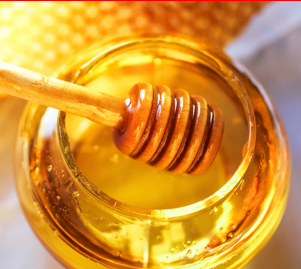by Dr. Marita Schauch, ND
A lot of people reach for over-the-counter allergy medications at this time of year. It’s not hard to understand: when you’re sneezing, stuffed up, low on energy and physically uncomfortable it’s natural to want something that acts fast to treat your symptoms.
The thing is, natural allergy treatments are much more effective – and better for your body – in the long run.
Over-the-counter medications such as anti-histamines block histamine, a symptom-causing chemical released by your immune system during an allergic reaction. Although they commonly ease those allergy symptoms with their “quick-fix” approach, some of them can cause side effects such as drowsiness, heart palpitations, difficulty urinating, constipation, dry mouth and nervousness.
Below is my list of 8 go-to natural allergy treatments. Some of them take a bit of time, but, in the long run, will leave you feeling healthier.
1. Netti Pots
This age-old remedy is a great natural way to clear the sinuses and flush out some of the allergens that cause your symptoms (itchy nose, watery eyes, sneezing, etc.).
How it works:
You essentially use what looks a lot like a tea pot (but isn’t one!) to send a saline water mix through your nasal passages. Don’t DIY this one, though: Netti Pots are sold at health food stores and some drug stores and come with all the instructions you need, as well as the saline solution.
2. Stinging Nettles
These plants can be pesky when you’re hiking (the leaves have tiny hairs that cause a stinging sensation, and some times a rash, when they make contact with the skin), but they’re great for your allergies. The leaves are anti-inflamatory, and the tiny hairs contain amines, which slow the release of histamines.
How to use them:
Start with two cups of nettle tea right now, as allergy season is just kicking off. You can also up the ante by ingesting nettles in recipes (don’t worry – when nettles are dried or cooked they lose their sting).
3. Omega 3s
Omega 3 fatty acids decrease the production of inflammatory chemicals in your body. As a bonus, most foods that contain Omega 3s are also a great source of selenium, an anti-allergy mineral.
Where to get them:
Omega 3s can be found in high concentration in salmon and other fatty white fish, walnuts, and flax seeds.
4. Onion & Garlic
Onions and garlic contain quercetin, a natural bioflavonoid that inhibits inflammation and stabilizes the mast cells to keep them from releasing histamine.
How to use them:
Cook at home! Onions and garlic are great in almost any dish, from pasta sauces to stir-fries. You can even do things like sautee them with some mushrooms and serve them over steak.
5. Rosemary
This herb contains rosemarinic acid, which has been shown to minimize allergic reactions.
How to use:
Rosemary grows well in most gardens, and now’s the perfect time of year to plant some. This fragrant herb is awesome for tossing with potatoes and oil, and then roasting. It’s also great in meat marinades for the barbecue. Although heavily fragrant, rosemary can be a nice addition to an herbal tea – provided you don’t use too much!
6. Apple Polyphenols
Two studies showed apple polyphenols reduces hay fever symptoms. Significant improvements were observed in sneezing attacks and nasal discharge in the high-dose group and in sneezing attacks in the low-dose group. There was also a significant improvement observed in swelling of the nasal passages in the treated groups.
Where to get them:
Apples! “An apple a day” is proving to be pretty sound advice….
7. Local Honey
There is a theory that if you consume local honey, it helps your body adapt to the allergens in that environment, almost working like a “natural” allergy shot.
What to do:
Consume a teaspoon of raw, local, unprocessed honey from as close to where you live as possible over the course of the spring and summer (or even all year round, if you suffer from severe allergy symptoms).
8. Probiotics
Allergies can be the result of an imbalance in the immune system that causes the body to react strongly to a specific entity. Research is now pointing to the connection between adequate beneficial bacteria and the lowered incidence of allergies.
Where to get them:
You can take probiotics in a supplement form, or get them in your diet by eating fermented foods like kefir, kombucha and sauerkraut.

